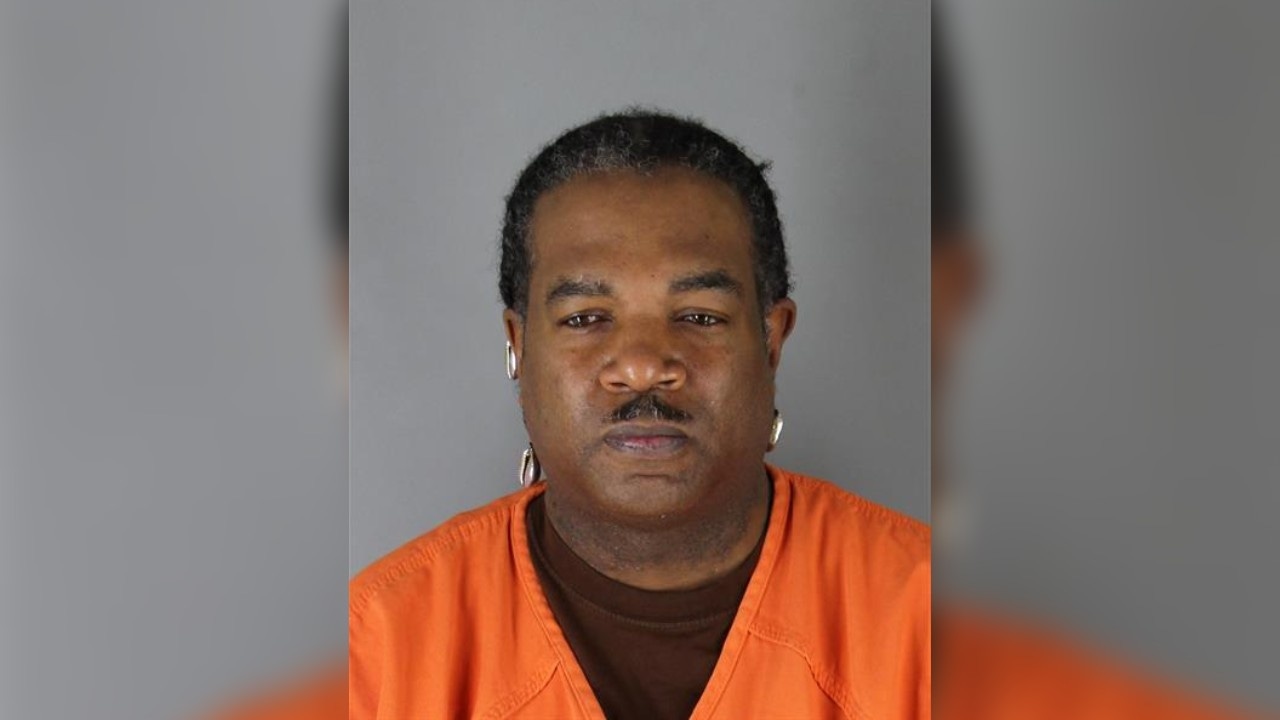Vermont
Vermont’s flood-wracked capital city ponders a rebuild with one eye on climate change

A beloved bookstore in Vermont’s small capital city moved across the street to a new spot farther from the Winooski River after an ice jam sent river water into the store in 1992. A nearby office supply and gift store did the same in 2011 because it liked a different space that came with a bonus: it was higher and farther from the river.
But their moves to higher ground weren’t enough to save them from flooding after torrential rains in July caused what some saw as the state’s worst natural disaster since a 1927 flood that killed dozens of people and caused widespread destruction. Some communities suffered more severe flood damage this year than when Tropical Storm Irene ravaged the small, mountainous state in 2011.
“I think most people in this area were very concerned about climate change, but we also were a little pretty much thought we were a little safer here because we had not really suffered the drastic events that some other parts of the country have,” said Rob Kasow, co-owner of Bear Pond Books. “But I think now we’ve been a little disabused of the notion that Vermont is safe from climate change.”
Now the mostly gutted shops, restaurants and businesses that lend downtown Montpelier its charm are considering where and how to rebuild in an era when extreme weather is occurring more often. Vermont’s flooding was just one of several major flood events around the globe this summer that scientists have said are becoming more likely due to climate change.
“It’s definitely going to happen again,” said Lauren Oates of the Nature Conservancy of Vermont. “It’s not a question of if, but when and how bad next time.”
Two people died in the flooding. More than 4,000 homes and 800 businesses reported damage, though officials expect those numbers to rise as the damage is tallied.
Roads were washed out and vehicles tipped over in the Ludlow/Okemo area on Tuesday after devastating rains.
Many communities in Vermont — small, rural and mountainous — grew up in valleys where the rivers were needed to move goods. Hundreds of years later, that means roads and waterways that often lie close to each other, State Climatologist Lesley-Ann Dupigny-Giroux said.
“That’s a piece that’s not going to change soon,” Dupigny-Giroux said. “But I think in terms of development, in terms of settlement, in terms of what do we do in relation to those roads and rivers is something we need to start thinking about really really closely so that we can be a little bit more proactive.”
After Irene, Vermont spent heavily in rebuilding roads, bridges and other infrastructure to better withstand future floods. But much of July’s rains fell elsewhere, and officials say more such work is needed around the state.
Oates, of the Nature Conservancy, said thoughtful planning is needed to simply give rivers more room to flood, too.
“A lot more still needs to be done if we’re going to continue to have our towns and villages alongside our rivers to make sure we’re all better prepared, to make sure our rivers have more space to move and release all of their potential energy as well as their volume,” Oates said.
The storms dumped up to two months of rain in two days in Vermont, causing the river to overflow into basements and first floors of Montpelier businesses and homes, and covered the historic downtown in waist-high water. The rains ripped out blacktop and washed out dirt roads to cut off some areas while inundating communities in southern Vermont.
After the water receded in Montpelier, a city of 8,000, those in its creative and vibrant downtown found themselves taking stock after many had only recently started to rebound from the COVID-19 pandemic. Some are still paying off loans that got them through that. Most did not have flood insurance.
At Bear Pond Books, scores of soaked books lay in mud, silt and debris on the floor after the flood. Volunteers and staff helped to pull the damaged books into a large pile and shovel out the mud. As at other businesses, the wall boards and flooring were removed to prevent mold.
After being hit by Irene and COVID-19, Kasow described the latest disaster as “sort of like a dull exhaustion.” Retirement just keeps getting farther away, he said.
“It does sap your energy to constantly have to rebuild every couple of years or reinvent or reinvest,” Kasow said.
Many businesses said they planned to reduce their vulnerability to future floods by moving utilities upstairs and no longer using their basements for storage. Some may move to other spaces altogether.
That includes Jenny Sebold, owner of Rebel Heart clothing and gift store and Pink Shutter Flowers, who called it “devastating” to see her businesses gutted. Last week, she pulled out a last bit of insulation already bearing the black marks of mold and peered through a hole in the wall. She could see the river through another hole in the floor.
Glenn Sturgis, owner of Capitol Copy, lost about $150,000 in equipment that he says would cost almost twice that to replace. At age 67, he had planned to sell the business next year. Now he’s simply going to walk away.
He said he hopes funding is used to prevent or accommodate flooding rather than just to rebuild.
“I don’t know how you do that with a city that’s this age, and these buildings and it’s right on the river,” he said.
He and his wife shopped downtown all the time, loved having an independent bookstore and want the businesses to come back, he said. “And they’ll be back but it’s got to be getting hard for people that have had to go through this a number of times,” he said.

The state has made $20 million in grants available to businesses looking to rebuild, capped at $20,000 each. Republican Gov. Scott said he knows that’s not enough money to help everyone. The businesses aren’t eligible for Federal Emergency Management Agency funding but several fundraising events are planned and GoFundMe sites have appeared.
Experts warn that the recovery — filing paperwork and pursuing insurance, finding contractors — can be more stressful than the immediate response to the disaster.
Sebold is already feeling that stress as she tries to keep her floral design business going without a space.
“I’m doing like twenty times the amount of work to make a fraction of the money but I have to do all of it,” she said. “And I need to fill out paperwork and I need to go to this meeting and I need to do insurance claims and I need to be ready when they say that that’s happening. So it’s like being a triage nurse but everyone’s missing a limb and everyone is bleeding out at the same time.”
AP reporter Brittany Peterson contributed to this report from Montpelier, Vermont.

Vermont
Vermont Conversation: Million meter man Noah Dines on his record-setting year of living strenuously – VTDigger

The Vermont Conversation with David Goodman is a VTDigger podcast that features in-depth interviews on local and national issues with politicians, activists, artists, changemakers and citizens who are making a difference. Listen below, and subscribe on Apple Podcasts, Google Podcasts or Spotify to hear more.
For Noah Dines, life has been an uphill climb. And that is his dream come true.

Dines, a 30 year-old Stowe local, is in the process of setting a new world record for human powered vertical feet skied in one year. The previous record had been 2.5 million feet set in 2016 by Aaron Rice, another Stowe skier. Dines broke Rice’s record in September, then surpassed his original goal of skiing 3 million feet in October, broke 1 million meters — or 3.3 million feet — in early December, and will wrap up the year having skied 3.5 million feet.
Uphill skiing is known as skinning, so named for the strips of material that attach to the bottom of skis that enable skiers to glide uphill without slipping backwards. They used to be made from seal skins, hence the name skinning. Skinning up ski area trails has become a popular form of exercise in recent years, and backcountry skiers also use skins to travel where there are no lifts.

Dines began his uphill skiing quest on New Years Day 2024 just after midnight. He turned on his headlamp, snapped on his lightweight alpine touring skis and quietly skied off into the night up the trails of Stowe Mountain Resort. He has spent this year chasing snow around the world, from Vermont, to Oregon, Colorado, Europe and Chile. He has skied all but about 30 days this year. A typical day has him skiing uphill about 10,000 feet. At Stowe, that means he skis at least five round trip laps per day, often more. He will finish his quest at the end of this month and will be joined in his last days by his father, who has never skied uphill before.
I met up with Noah Dines on December 17 at the base lodge at Spruce Peak at SMR. It was raining, but Dines was still skiing.
“If you bail when it rains all the time, then you’re not getting everything you could,” he said.
Dines explained that his record quest has required “a lot of saying no” to everything from friends’ weddings to having a beer, from which he has abstained. “Your response to anything has to do with, how will this affect my big year?” he said.
READ MORE

Conceding that “the money has definitely been hard,” Dines has supported himself during his year of chasing snow through sponsorships from Fischer Skis, Maloja clothing and Plink electrolyte drinks. He also raised $10,000 through a GoFundMe and has drawn down his savings.
What has a year of living strenuously meant?
“Friendships. I’ve met so many incredible people. It’s meant learning how to persevere and work harder than I’ve ever worked before. It’s meant seeing beautiful sunsets in Chile. It’s meant cold mornings and crisp Alpine air. In Europe, it’s meant croissants on the side of a mountain. It’s meant more time with friends in Stowe.”
By pursuing a dream, Dines hopes that he can be a model for others. “I have a passion and I pursued it and I’ve pushed myself as hard as I can, and you can too,” he said. “It doesn’t have to be with sports or take a year, but there’s no reason that you can’t set goals and meet them, that you can’t push yourself just because you didn’t grow up doing it.”
What will the million meter man do to start 2025?
“Well first and foremost, I’ll take a little nap, at least for an afternoon.”
Vermont
Opinion — Rep. Mike Mrowicki: The spirit of cooperation for the 2025 legislative session

This commentary is by Mike Mrowicki, democratic state representative for the Windham-4 district.
As we head into the 2025 legislative session in January, I want to first offer congratulations to Gov. Scott, Jason Maalucci and the Republican campaign effort. They sure got it right about affordability.
Yes, property taxes / education funding are on people’s minds but the ongoing frustration about inflation/affordability also includes the price of eggs, the increase in health insurance cost and rising home insurance costs. Especially where there’s been flooding two years in a row.
So, Vermonters want action and there sure seems a broad sense of enthusiasm from legislators to come together and get the work done. To balance the competing needs of providing our kids a quality education and making it affordable. After all, the kids of today will be taking our blood pressure tomorrow and don’t we want them to be able to do it accurately, based on the quality education they got in Vermont?
At the same time, no one should feel that their taxes are a threat to staying in their homes. We need to make sure, especially for those on fixed incomes, that despite rising property values, property taxes should reflect ability to pay.
In the spirit of working together with the governor, then, I and other legislators are eagerly awaiting his ideas for fixing the property tax / ed funding dilemma. And, we are ready to hear what he has to say on the raft of other factors that challenge Vermonters’ sense of affordability.
Like the cost of health insurance. Blue Cross Blue Shield Vermont individual premiums will rise by 19.8% next year. There isn’t a budget this doesn’t affect: home budgets, town budgets, school budgets and state budgets. It’s a cost driver across the board and we’re looking forward to hearing the governor’s plan on how to make this more affordable.
Housing is unaffordable and, in many cases, unavailable, especially for our financially challenged neighbors. The lack of housing is the barrier to progress in so many sections of our landscape. It is the greatest barrier to growing our workforce and economy so, likewise, we’re looking forward to the governor’s plans on Housing.
The cost of transportation and maintaining our roads and bridges is also unaffordable. This is compounded by our gas taxes no longer providing sufficient funds to maintain our roads and bridges. Here’s another area where we’re waiting to hear the administration’s plan so we can work together to solve this.
And, of course, climate change is costing towns across Vermont unaffordable amounts to fix the damage from this year’s floods, and last year’s as well. Who knows what next year will bring, but these are costs that Vermont taxpayers are bearing right now and adding to the pile of issues that are making Vermont unaffordable. We’ll be looking forward to hearing from the governor and his administration how we make those climate costs affordable.
Legislators are ready to work together, as the 18-week session nears. To work together in the spirit of cooperation and keeping focused on how we can best help Vermonters.
As the late Mario Cuomo once said when he was governor of New York in the last century, “You campaign in poetry. You govern in prose.” A good way of saying the campaign is over, the hard work is ahead of us.
Vermonters work hard to make ends meet. We get that. Legislators will also be working hard to make sure Vermonters feel heard and see results. When we adjourn in May, here’s hoping the spirit of cooperation brings us to a better place for all the issues facing Vermont, so everyone’s hard work feels all the more worthwhile.
Vermont
A trio of performers plans to host Bethel’s 1st annual drag-themed Christmas party – VTDigger

Three young drag performers are hosting a Christmas party in the small town of Bethel. They say they would rather do it in rural Vermont than in any big city.
“I feel like it’s really important to show up and show that there are people here,” said drag queen Ima Hoar, known offstage as Elijah Reed. “I’ve heard so many people say that we’re all just hiding in the hills a little bit.”
Ryder Faster, a 22-year old drag king also known as AJ Holbrook-Gates, said the trio, who all live in Bethel, want to bring drag to smaller communities to let people “who are under the radar” know that they’re seen.
The 18+ party is scheduled to take place Friday at the White Church.
Ima Hoar has taken the lead on logistics, overseeing essentials like the sound system and venue setup. Reed is married to Adam Messier, who’s also performing in Friday’s show as Lavender Homicide. The pair’s drag journey began during the isolation of Covid-19, when they started performing at home and hosting karaoke nights. Their creative spark, born in private, has since grown into a dynamic partnership bringing drag to Vermont’s rural communities.
“We wanted to have a similar vibe to that, where it’s like a relaxed space where people can have fun and just do whatever kind of makeup you want and do whatever kind of songs you want,” Lavender said.
This Friday’s party will mark Ima Hoar’s second performance, where she’ll swap the glitz of traditional burlesque drag for her signature style: comedy. Her specialty? “Grandma drag,” a playful homage to her childhood memories, performed in a nightgown.
“That kind of comes from when my grandmother had wigs growing up, and so I would always dress up as her essentially,” she said. “I would wear the wigs and put on both my sisters’ princess heels and walk around with a cane.”
Ima described her drag queen persona as leaning heavily into comedy, embodying the awkwardness and playful allure of a “sexy grandma.”
As a nonbinary performer, Ima sees drag as an exploration of extremes, where gender becomes a playful exaggeration. “It feels very nice to do this polar opposite of this super gender thing, where you’re just dressing up as gender personified a little bit,” she said. “I definitely find it very healing in a gender way.”
Lavender Homicide, 22, on the other hand, describes herself as an “80s hooker in a horror movie.”

“I’ve always loved the rock and roll and the punk aesthetic of it all,” she said, adding that seeing the women wearing fishnet tights and miniskirts with crazy hair was inspiring.
She chose the name Lavender Homicide not only because she likes the flower, but also because she tries to mix sweet names with scary ones.
She also wears a lot of perfume, mainly the scent Champagne Toast, out of fear of smelling bad while performing.
Lavender recalled being encouraged years ago to perform by Emoji Nightmare, a drag entertainer in Vermont whom she has known since she was 15. “She’s the big game in Vermont,” Lavender said.
“She kind of was all the time, like, ‘Hey, when are you going to come perform?’ And I’m like, ‘I’m a teenager. I can’t do that,’” she said.
Lavender recalled struggling with finding her identity when she was young. While she wasn’t ready to perform as a teenager, she started at 15 with drag makeup and has been perfecting it for seven years now. “I love wearing dresses and heels and makeup, but I’m also fine with the body that I was born with and how I dress day to day,” she said. “And I went through a lot of inner turmoil with that.”
It wasn’t until Bethel Pride Fest 2023 — an event Lavender was helping run — that her mindset started to shift. She received a surprising message from another drag performer the following week asking if she wanted to be part of an upcoming show. Lavender’s response? “Absolutely.”
Lavender’s former classmate at Randolph Union High School will also be taking the stage Friday night.

The Christmas party will be Ryder Faster’s second themed event, following a Halloween party where he missed a memo about the dress code.
“It was supposed to be a spooky Halloween theme, and I dressed up as Donald Trump,” he said. “And then everybody else was wearing black dresses and such.”
Ryder’s drag persona draws inspiration from other performers, particularly fellow drag king Prince Muffin, who also plans to perform at the Christmas party. With his cowboy hat, chaps, and bold contouring, Ryder hopes his performances share the message of self-acceptance.
“I hope to encourage people to love themselves for who they are,” he said. “Because I certainly didn’t do so for a while.”
The Christmas party is hosted together with Babes Bar, which will have a pop-up bar at the party. The collaboration blossomed out of an initial favor the owners of the bar, Jesse and Owen McCarter, did for Ima and Lavender in real life. They helped the couple buy a house.
“I’m super excited to support younger folks who move into town,” said Owen McCarter. He has seen them all perform and believes they all complement each other.
“Ryder is the Western manly character. Lavender brings very fierce energy. She’s very bold and confident, and Ima, she’s hilarious and has a lot of jokes,” he said.
Breaking barriers
In Bethel, these drag performers are carving out an inclusive space in a community that might initially seem an unlikely stage for their art, Ima said. The choice to settle in a rural town rather than a city like Burlington, known for its openness and established LGBTQ+ community, was practical and intentional.
“We moved here last year, and Bethel has a very engaged community just all around,” Ima said. “It’s very supportive of just little projects everywhere.”
With initiatives like the Juneteenth Celebration and Pride Fest, Ima and others are not only fostering connections but also challenging the perception that rural spaces lack inclusivity.
For Lavender Homicide, drag is not just performance — it’s a statement of visibility and resilience in a time when mainstream attention has brought both celebration and backlash.

“I think drag is very important nowadays. I think more than ever,” Lavender said, reflecting on how shows like RuPaul’s Drag Race have catapulted drag from the underground bar scene into the cultural spotlight.
But with that visibility comes scrutiny.
“With most things, because it’s mainstream now, people are upset about it,” she said. Lavender and her fellow performers are determined to counter narratives painting drag as harmful or inappropriate.
“We’re trying to just push the community, especially with the whole ‘drag queens are dangerous to children’ narrative,” she said. “But we’re not, though.”
For Ima, bringing drag to small towns is about bridging distances — both literal and metaphorical. She said there are many drag performances in Burlington, but for many rural residents, attending these events involves lengthy drives, something not everyone can do regularly.
The goal, instead, is to create moments of joy closer to home — whether in Bethel or neighboring towns like Williamstown — where drag performers engage with local businesses, recognizing that these residents, too, exist in their own “bubble,” Ima said. Beyond convenience, there’s also a quiet defiance in this choice.
“I feel like some of it is semi-passive resistance against just the idea that rural communities aren’t super accepting,” Ima said. “We’re not doing anything super political, but we’re just existing in a way that holds space.”
Doors open at 6 p.m. and the show, which has a $15 admission fee, starts at 7 p.m.
-

 Politics6 days ago
Politics6 days agoCanadian premier threatens to cut off energy imports to US if Trump imposes tariff on country
-
/cdn.vox-cdn.com/uploads/chorus_asset/file/25782636/247422_ChatGPT_anniversary_CVirginia.jpg)
/cdn.vox-cdn.com/uploads/chorus_asset/file/25782636/247422_ChatGPT_anniversary_CVirginia.jpg) Technology1 week ago
Technology1 week agoInside the launch — and future — of ChatGPT
-
/cdn.vox-cdn.com/uploads/chorus_asset/file/25789444/1258459915.jpg)
/cdn.vox-cdn.com/uploads/chorus_asset/file/25789444/1258459915.jpg) Technology6 days ago
Technology6 days agoOpenAI cofounder Ilya Sutskever says the way AI is built is about to change
-

 Politics6 days ago
Politics6 days agoU.S. Supreme Court will decide if oil industry may sue to block California's zero-emissions goal
-
/cdn.vox-cdn.com/uploads/chorus_asset/file/25546252/STK169_Mark_Zuckerburg_CVIRGINIA_D.jpg)
/cdn.vox-cdn.com/uploads/chorus_asset/file/25546252/STK169_Mark_Zuckerburg_CVIRGINIA_D.jpg) Technology6 days ago
Technology6 days agoMeta asks the US government to block OpenAI’s switch to a for-profit
-

 Politics1 week ago
Politics1 week agoConservative group debuts major ad buy in key senators' states as 'soft appeal' for Hegseth, Gabbard, Patel
-

 Business4 days ago
Business4 days agoFreddie Freeman's World Series walk-off grand slam baseball sells at auction for $1.56 million
-
/cdn.vox-cdn.com/uploads/chorus_asset/file/23951353/STK043_VRG_Illo_N_Barclay_3_Meta.jpg)
/cdn.vox-cdn.com/uploads/chorus_asset/file/23951353/STK043_VRG_Illo_N_Barclay_3_Meta.jpg) Technology4 days ago
Technology4 days agoMeta’s Instagram boss: who posted something matters more in the AI age


















